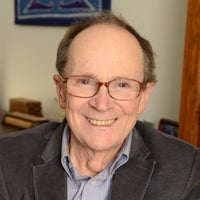- Professor Emeritus
- Chafee Bldg, Rm 185
- Email: jfpeterson@uri.edu
Biography
Dr. Peterson’s introduction to philosophy began in a high school math class which in part dealt with classes and their relations. This was applied to reasoning where he first met up with Venn diagrams. He became intrigued with the idea of the different ways in which we marshal evidence for conclusions, though he was as yet unaware of the philosophical problems and issues that lay behind reasoning such as the problem of induction, Mill’s and Russell’s respective critiques of the syllogism, etc.
His interest in philosophy grew and broadened in college and especially in graduate school where he focused more on metaphysics, epistemology and ethics than on logic. Yet he remembers one professor saying, “How can we educate undergraduates without teaching them how to think correctly and to easily recognize fallacious thinking when they come across it”? The question and its evident negative answer spawned a sense of duty on his part that has stuck to him.
Research
Dr. Peterson’s interest areas have changed over the years. Currently he is focused on theories of truth and in particular on the medieval notion that truth is the conformity of being or things to mind or intellect. Does not this imply that mind is the measure of things and not the other way around? If so, how is this notion compatible with alleged medieval realism as over against anti–realism?
Education
- Ph.D., Philosophy, Indiana University, 1965
- B.A., English, Boston College, 1959
Selected Publications
Recent Publications include “Creation and Consciousness” (Studia Neoaristotelica, Issue 1, 2014), Introduction to Thomistic Philosophy (University Press of America, 2013), “Is There Natural Purpose”? (International Philosophical Quarterly, vol. 48, no. 2, 2008).

